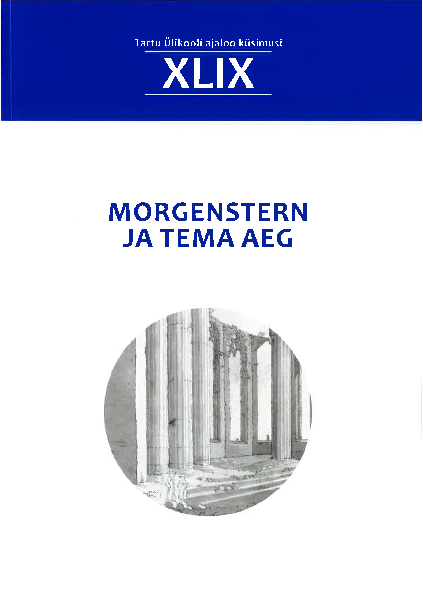Morgenstern ja tema kaasaeg: nn humanistlikud alusained keiserliku Tartu ülikooli õppekavas 1803-36
Morgenstern and His Time: Humanist Propaedeutic Subjects in the Curriculum of the Imperial University of Tartu from 1803 to 1806
DOI:
https://doi.org/10.15157/tyak.vi49.18376Abstract
The foundation of the imperial University of Tartu/Dorpat has been
described as being part of the rationalist Enlightenment movement,
with a focus on the importance of the Rector and Professor of Physics
Georg Friedrich Parrot, or Johann Wilhelm Krause (university architect
and Professor of Architecture). Johann Karl Simon Morgenstern
(director of the University Library and Museum, Professor of Rhetoric,
Classical Philology, Aesthetics, Art History and History of Literature)
has been studied from various aspects before, but his neo-humanist
ideas have been mostly described from the perspective of
classical scholarship. The goal of this paper is to review the sources of
the humanist curricula of introductory subjects, which Morgenstern
taught to all faculties during his activity, focussing on two examples.
Friedrich August Wolf has often—with good reason—been described
as Morgenstern’s main inspiration, but we also need to consider the
influence of Julius Erduin Koch, whose Hodegetik offers recommendations
for introductory subjects in all faculties. Almost all of these
were taught by Morgenstern from 1803 to 1836.

